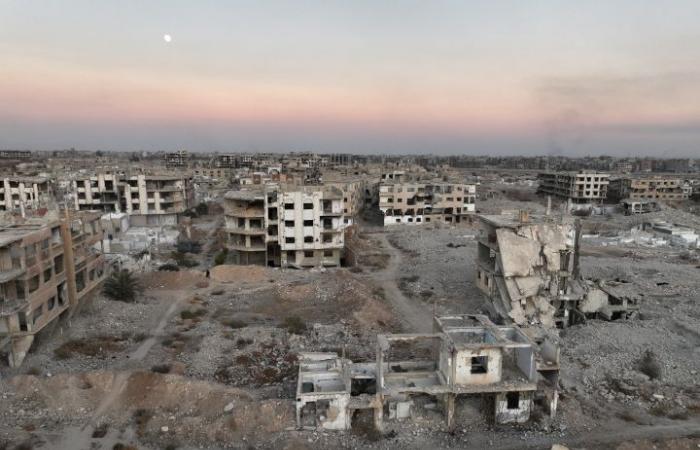More than 60 Israeli strikes targeted military sites in a few hours across Syria, almost a week after the capture of Damascus by an armed coalition that toppled Bashar al-Assad, an NGO said on Saturday.
The Syrian Observatory for Human Rights (OSDH) recorded “61 strikes in less than five hours” on Saturday evening by Israel, which has intensified its strikes on its neighbor since the fall of Assad, bringing to “446 the total number of air raids since December 8,” according to the NGO.
“Israel continues its intensification of air strikes against Syrian territory, in particular to completely destroy tunnels under the mountains containing ballistic missile warehouses,” added the OSDH, specifying that “fragmentation missiles” had been used.
“These tunnels contained warehouses for ballistic missiles, ammunition, mortar shells and other military equipment,” according to the NGO, based in the United Kingdom but with a vast network of sources inside Syria.
On Saturday evening, it also reported Israeli strikes against other arms depots in the Qalamoun region, near Damascus, but also near Deraa and Soueida in the south.
Earlier, the OSDH reported that a “scientific institute” and other military positions in Barzé, on the northeastern edge of Damascus, had been destroyed by Israeli strikes.
“Exhausted” country
They had also targeted a “military airport” in the surroundings of the city, according to the NGO which adds that these series of strikes against “the military sites of the former regime” aim to “destroy what remains of the military capabilities of the next Syrian army.
On Friday, the Israeli Air Force also targeted a “missile base on Mount Qassioun in Damascus”, added the OSDH, as well as an airport in the Soueida region and “research and testing laboratories”. defense in Masyaf”, in the province of Hama.
Furthermore, Israeli Defense Minister Israel Katz ordered the army to “prepare to stay” throughout the winter in the buffer zone located on the edge of the part of the Syrian Golan occupied by Israel.
Israeli troops entered the buffer zone just after Assad’s fall. The UN has denounced a “violation” of the 1974 disengagement agreement between Syria and Israel.
On Saturday, Abu Mohammad al-Jolani, the leader of the Islamist-dominated coalition that took power in Syria and now calls himself by his real name, Ahmad al-Chareh, denounced the incursion.
He nevertheless affirmed that his country was too “exhausted” by the war to engage in a new conflict.
With AFP






